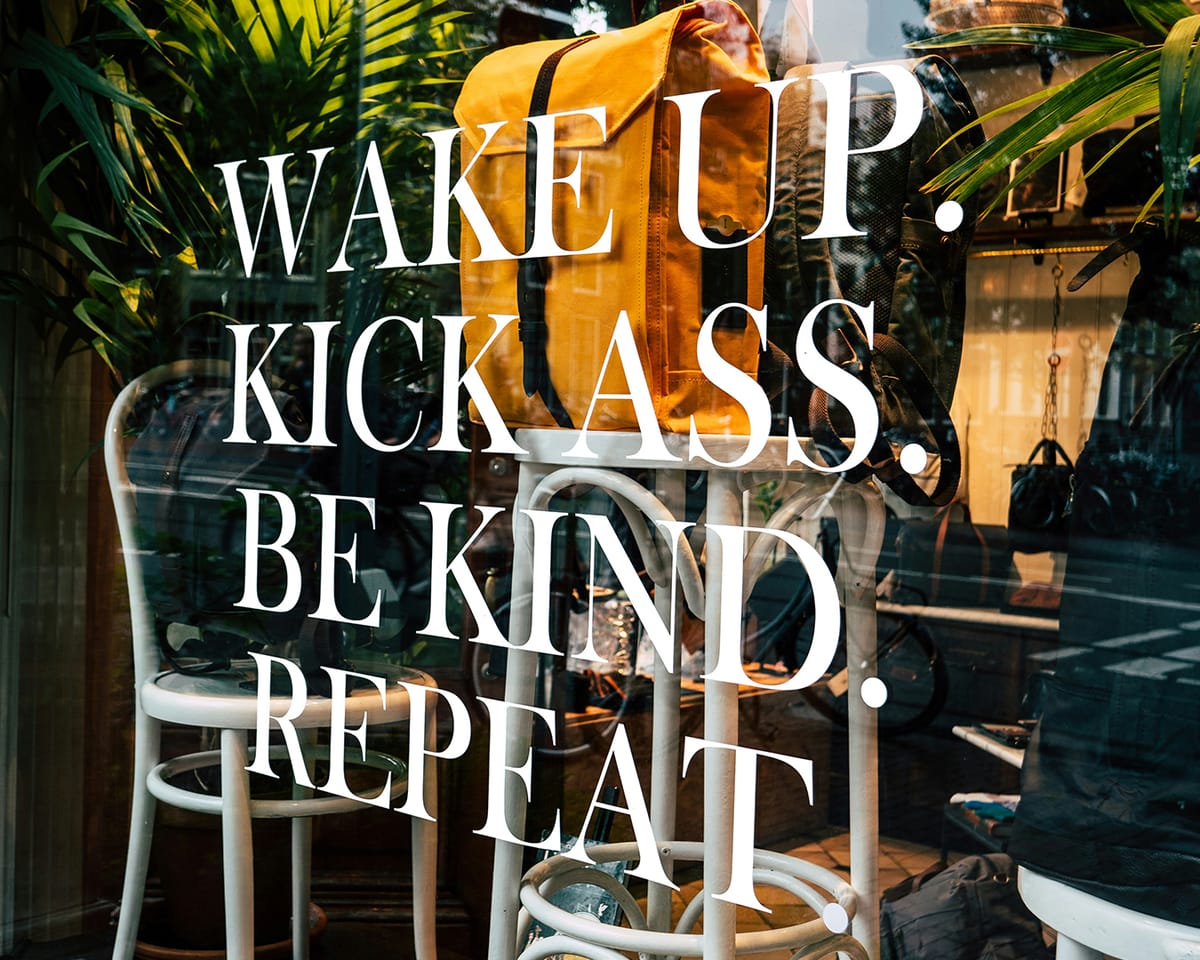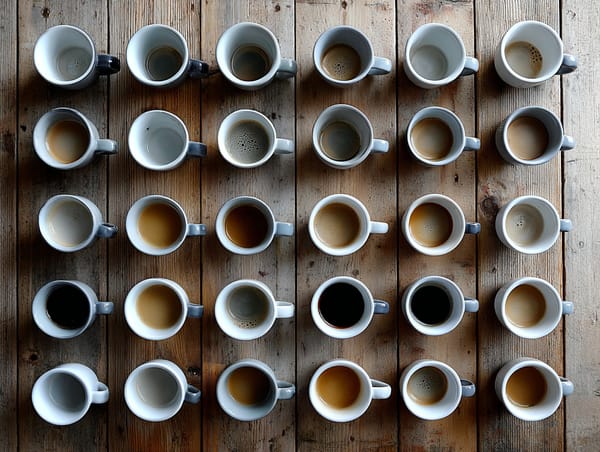Why is showing up consistently the key to success in any creative field?
Designers, artists, writers, and other creatives know that success is often a result of hard work and dedication.

Designers, artists, writers, and other creatives know that success is often a result of hard work and dedication.
However, many people are unaware that success is also a result of consistency. To be successful in a creative field, you must be willing to show up day in and day out, put in the work, and be consistent.
There are many talented people out there who will never make it because they are unwilling to be consistent.
They may have a fantastic idea for a design or a piece of writing, but they are unwilling to put in the effort day after day to see it through. Or, they may work hard for a while before becoming distracted or discouraged and giving up.
You must be willing to put in the effort even if you do not see immediate results. And you must be willing to keep going even when it appears that you are making no progress.
1. What is consistency and why is it so important in creative fields?
When it comes to creativity, consistency is essential.
To be successful in any creative field, you must show up every day with your best work and put in the hours—no excuses. This is especially true for freelancers, who often need to work twice as hard to get their names out there.
Freelancing can be unpredictable and inconsistent, so you must find ways to maintain your productivity and consistency even when things are difficult. That is why consistently showing up is the number one key to success in any creative field.
If you are consistent in your efforts, you will eventually see results. It may take weeks, months, or even years, but if you persevere, your hard work will eventually pay off.
So, if you want to be successful in the arts, remember that consistency is essential. Show up and do the work, even if you don't feel like it, and you will eventually achieve the success you seek.
2. How can freelancers ensure they're being consistent with their work?
There are a few key things freelancers can do to ensure consistency in their work.
To begin with, it is critical to set regular hours for yourself and adhere to them as much as possible. This will assist you in staying on track and avoiding burnout. It is also necessary to divide your projects into smaller tasks in order to better manage your time and energy.
Finally, make sure to take care of yourself both physically and mentally—this will help you stay focused and motivated at work.
3. What are the benefits of consistency in creative fields?
There are countless benefits to being consistent in creative fields.
For one, it helps you build a strong reputation and credibility with clients. It also allows you to develop deeper relationships with your audience and followers. And finally, it gives you the chance to perfect your craft and become the best creative professional you can be.

4. How do you measure success when it comes to consistency, and what are some goals you can set for yourself to increase your chances of achieving it?
Any successful creative professional must be consistent.
Whether you work as a freelancer or for a company, if you want to make a name for yourself, you must consistently deliver your best work. When it comes to consistency, one way to measure success is how often you are able to produce your best work.
If you're a freelance graphic designer and can only produce great work once every few weeks, you're not being consistent enough. On the other hand, you are much more consistent if you consistently do good work with every piece.
Of course, when it comes to consistency, everyone has different goals. For some, producing excellent work once a week may be sufficient. Others may desire to be able to do it every day. What matters is that you set goals for yourself and then do whatever it takes to achieve them.
If you're struggling with consistency, here are a few tips that can help:
- Make a plan and stick to it. Having a set schedule that you stick to is one of the best ways to be consistent. This could mean setting aside time every day to work on your craft, or it could mean committing to working on specific days or times of the week. Whatever you decide, make sure you follow through on it.
- Find an accountability partner. Finding someone who can hold you accountable is another great way to improve your consistency. This could be a friend, family member, or even another freelancer with whom you maintain regular contact. Having someone hold you accountable will help you stay on track and achieve your objectives.
- Last but not least, remember to take breaks! Working nonstop is not only unhealthy, but it also increases the risk of burnout. Make time for yourself every day, even if it's only for a few minutes. Take a walk, listen to some music, or read a book. Taking some time to unwind will help you be more productive at work.
5. What are some ways that inconsistency can hurt freelancers?
Freelance graphic designers know that inconsistency can hurt their business.
If they don't show up with their best work day in and day out, they'll quickly lose clients and be out of work.
Freelancers often have to hustle twice as hard as regular employees, so there's no room for inconsistency or missed deadlines. In order to be successful as a freelancer, you have to show up every day and give it your all. There are no excuses when it comes to your work.
Some ways that inconsistency can hurt freelancers include:
- Losing clients: If you're not consistently delivering high-quality work, your clients will quickly take their business elsewhere.
- Missed deadlines: Freelancers often have tight deadlines, so missing even one can be costly.
- Decreased productivity: If you're not showing up every day and putting in the work, your productivity will suffer.
- Unprofessionalism: Freelancers have to hustle twice as hard to be taken seriously, so any hint of unprofessionalism can be costly.
There's no room for error when you're your own boss. Showing up every day and giving it your all is the only way to make it as a freelancer.
6. How can you overcome inconsistency in your work?
If you're finding it difficult to be consistent in your work, there are a few things you can do to overcome this.
First, take a close look at your schedule and see where you can make some adjustments. Make sure you're setting regular hours for yourself and sticking to them as much as possible.
Second, try breaking down your projects into smaller tasks so you can better manage your time and energy.
And finally, make sure you're taking care of yourself both physically and mentally; this will help you stay focused and motivated in your work.
7. What are some common pitfalls that can prevent you from being consistent in your work, and how can you avoid them?
Freelance graphic designers, in particular, know that it can be tough to maintain a steady stream of clients and high-quality work if you're not consistent in your approach.
Here are some common pitfalls that can prevent someone from being consistent in their work, and how you can avoid them:
- Not setting a schedule: One of the most common mistakes that people make when trying to be consistent in their work is not setting a schedule. Without a set schedule, it's easy to get sidetracked and push your work off until tomorrow. Make sure to set aside specific times each day or week to work on your project, and stick to it.
- Failing to plan: Failure to plan is another common mistake that can lead to inconsistency. Having a clear plan for what you need to do each day or week will assist you in staying on track and avoiding distractions. Make time each week to plan out your work, and don't be afraid to change your plans as needed.
- Working in spurts: Another common mistake is trying to work on a project in fits and starts. This can be counterproductive as it's often hard to get back into the creative flow once you've been interrupted. If possible, try and work on your project for a set period of time each day or week, and avoid taking too many breaks.
- Being a perfectionist: Trying to perfect every aspect of your project can be a recipe for disaster. Not only will it likely never be perfect, but you'll also end up spending far more time on it than necessary. It's important to remember that done is better than perfect, so don't get bogged down in the details.
- Not being prepared: It's also critical to be well-prepared before beginning work on a project. Before you begin, double-check that you have all of the necessary supplies or materials and that you understand what you're doing. Trying to make it up as you go along will only result in frustration and wasted time.
These are just a few of the usual problems that might make it difficult for someone to stay on track with their task. You'll be well on your road to success if you avoid these pitfalls.
8. What should you do if you fall off track and start becoming inconsistent?
If you find yourself falling off track and becoming inconsistent, the first thing you need to do is identify the cause.
Maybe you're not giving yourself enough time to work on your projects, or maybe you're not being productive because you're working in a distracting environment.
Once you've identified the cause, it's time to take corrective action. Maybe that means setting stricter deadlines for yourself or working in a more focused environment.
No matter what the cause, the important thing is to get back on track as soon as possible. The longer you let your inconsistency continue, the harder it will be to regain traction.
The importance of consistency in creative work cannot be overemphasized. As a freelancer, it’s especially important to show up day in and day out with your best work and put in the hours—no excuses.
By being consistent, you’ll not only improve your own skillset but also build a reputation as a go-to professional in your field. So, make sure to consistently produce great work and hustle hard; the results will speak for themselves.
How have you found consistency to be important in your creative career?



